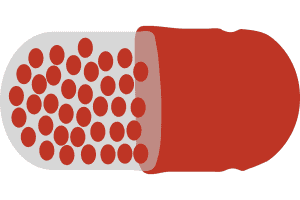A new Nordic study has revealed a significant link between blood clots caused by paroxysmal nocturnal hemoglobinuria (PNH) and an increased risk of kidney failure. PNH is a rare, life-threatening blood disorder characterized by the destruction of red blood cells, leading to various complications, the most severe of which include thrombosis—dangerous blood clots that can form in veins and organs.
The study, conducted across Sweden, Denmark, and Norway, and reported by PNH News, analyzed medical data from PNH patients to better understand the relationship between thrombosis and kidney outcomes. Researchers found that patients with a history of PNH-related thrombosis were substantially more likely to develop kidney failure than those without such a history. This connection underscores the importance of monitoring and managing blood clots in individuals with PNH.
PNH occurs when mutations in bone marrow stem cells lead to the production of abnormal red blood cells, which are more likely to break apart—a process called hemolysis. The resulting release of hemoglobin into the bloodstream can trigger a cascade of health issues, including the formation of blood clots. Thrombosis is already known as the leading cause of death in PNH, but its direct impact on kidney health has been less clear until now.
According to the study, the kidneys are particularly vulnerable because clots can block blood flow, causing sudden or chronic damage. The researchers observed that the risk of kidney failure was much higher in PNH patients who had experienced at least one episode of thrombosis, including both venous and arterial clots. The findings suggest that these clots impair kidney function by restricting oxygen supply and causing tissue injury.
The study’s authors emphasize the need for early detection and aggressive management of thrombosis in PNH patients. Treatments that reduce hemolysis and prevent clot formation, such as complement inhibitors, may also help preserve kidney function over time. Enhanced patient monitoring, regular kidney function tests, and prompt intervention at the first sign of clotting are recommended as part of a comprehensive care strategy.
This research highlights the interconnected nature of PNH complications: the breakdown of red blood cells not only threatens overall health but can also initiate a domino effect leading to kidney damage. The findings are particularly relevant for healthcare providers treating PNH, as they point to the urgent need for integrated approaches that address both blood clot prevention and kidney protection.








